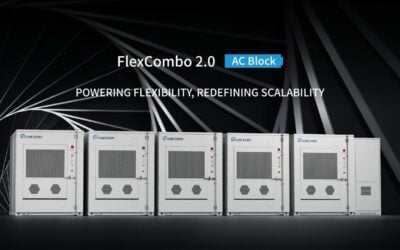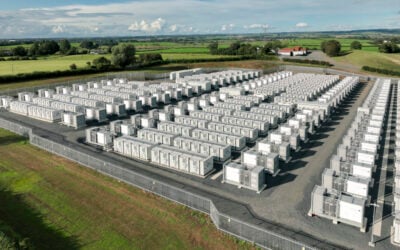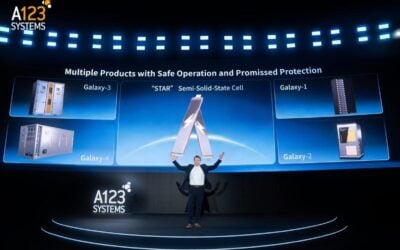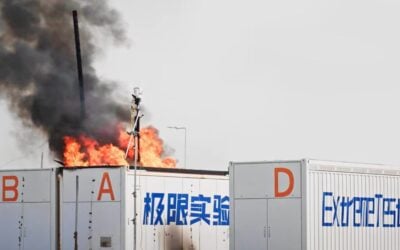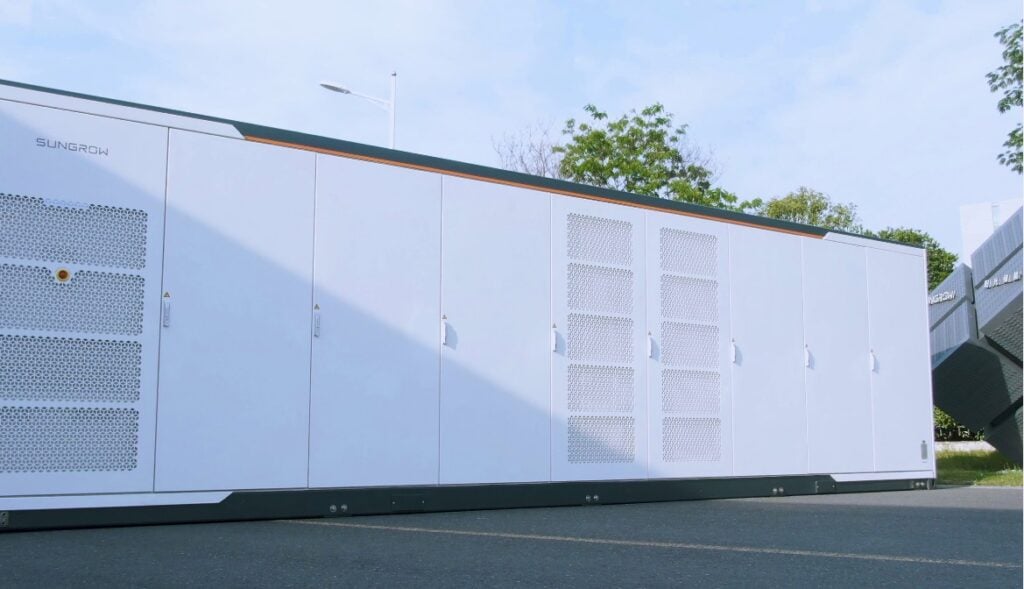
Sungrow has received a Certificate of Approval (COA) in New York City for its Powertitan battery storage solution, joining just a handful of other approved products on a list produced by the city’s fire department.
The battery storage division of the major Chinese solar PV inverter manufacturer said last week that Powertitan, a liquid-cooled battery energy storage system (BESS), has met first safety requirements set by the Fire Department of New York (FDNY).
New York has some of the most stringent rules on fire safety for energy storage systems anywhere in the world. This is based around the need to ensure safety of the public, as well as fire service crews and other emergency responders, when installing powerful energy equipment in its densely populated urban areas.
As recounted by a team of experts from Energy Safety Response Group (ESRG) in a 2021 article for our quarterly journal PV Tech Power (Vol.25), FDNY created its own set of requirements for outdoor stationary battery storage systems, in addition to adhering to the same certifications standards as most other jurisdictions like UL1973 for safe installation and operation and UL9540A thermal runaway and propagation test data.
Try Premium for just $1
- Full premium access for the first month at only $1
- Converts to an annual rate after 30 days unless cancelled
- Cancel anytime during the trial period
Premium Benefits
- Expert industry analysis and interviews
- Digital access to PV Tech Power journal
- Exclusive event discounts
Or get the full Premium subscription right away
Or continue reading this article for free
Indoor systems are also effectively banned, except in special circumstances where local authorities exempt that restriction.
Sungrow has received the key TM-2 approval and COA which is needed for its outdoor systems to be allowed to interconnect to the New York grid. It had to prove that Powertitan’s safety features and design prevented thermal runaway fires.
The City of New York Fire Department’s Bureau of Fire Prevention publishes a list of approved equipment and manufacturers. The list currently on display shows that as of 19 July, the last time it appears to have been updated with current approvals, only four products from three manufacturers were featured.
Those were Tesla’s Megapack BESS as well as ELM’s Fieldsight microgrid solution and distributed energy storage products from SimpliPhi Power.
Fire safety of course remains a priority for the industry: while BESS fire incidents are extremely rare, they can shake confidence in a nascent industry, and as ESRG expert and former NYC firefighter Paul Rogers pointed out in a 2022 interview, if they do happen in urban areas, they can be high risk.
Local news reports from around the world also show that when not well-informed, communities can often harbour fears of having a large-scale battery storage installation in their neighbourhood.
For New York, which as a state has a policy target in place of reaching 6GW of energy storage deployments cumulatively by 2030, this aspect of development planning has been one of the reasons the state’s storage market has been slow to take off.
To date much of the large-scale BESS development in the state has been focused on areas such as rural Upstate New York, which has far lower population density, but with most electricity demand concentrated in urban areas, it appears likely more development will need to occur in the city too.
In order to get around restrictions on indoor lithium-ion BESS installations, for example, the New York State Energy Research and Development Agency (NYSERDA) is trialling some new technologies, such as Cadenza Innovation’s lithium ‘Supercell’ product and zinc-based batteries.
Sungrow representatives presented and discussed the technologies and design features of the Powertitan product in a November 2022 sponsored webinar with sister site PV Tech, which you can access on-demand here (registration required), or watch on PV Tech’s YouTube channel here.

